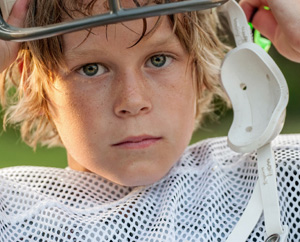Keeping Children Cool When the Heat Is On

Looking at a long-standing concern
The American Academy of Paediatrics (AAP) considered what was the latest research at the time when crafting their policy statement, “Climatic Heat Stress and Exercising Children and Adolescents.” One of the most important take-away messages in the report is that, “contrary to previous thinking, youth do not have less effective thermoregulatory ability, insufficient cardiovascular capacity, or lower physical exertion tolerance compared with adults during exercise in the heat when adequate hydration is maintained.”
This should bring relief to concerned parents of young athletes, but it is by no means a license to push children and teens to exercise hard or long in high heat. The policy statement points out that heat-related illness in children is the result of a number of known risk factors, including:
- lack of recovery time between workouts,
- closely scheduled same-day training sessions, often referred to as “double days,”
- wearing clothing or protective gear that results in over-heating,
- the presence of a chronic health condition in a child that reduces heat tolerance, including diabetes, obesity, juvenile hyperthyroidism (Graves’ disease), cystic fibrosis, and sickle cell anaemia, and
- using medications that can affect hydration, such as those used to treat attention-deficit/hyperactivity disorder (dopamine-reuptake inhibitors) and asthma, gastritis, ulcerative colitis, cystitis, and insomnia (anticholinergic drugs).
If your child has a chronic health condition or is taking medication, check with your family doctor or paediatrician about how this might affect his or her ability to exercise in the heat.
Hot weather work-arounds
If you have young athletes in your house, take steps to ensure they stay safe when exercising in the heat. According to the AAP, you should:
- Ensure coaches and other adults on-site have had training for safely working with young athletes in the heat.
- Verify that trained adults are available on-site during practice and games to treat heat illness.
- Educate children on how to gradually work up to physical activity in the heat and on the signs of heat exhaustion.
- Offer time for children to drink plenty of fluids before, during, and after exercise.
- Modify activities to accommodate each child’s unique needs and reschedule practice and games to cooler times.
- Let children rest at least two hours between workouts or matches and games in hot weather.
- Ensure your child’s coach has an emergency action plan to deal with heat-related illnesses.
- Limit children’s participation if they have had a recent illness.
(Paediatrics 2011;128:1–7)
Suzanne Dixon, MPH, MS, RD, an author, speaker, and internationally recognised expert in chronic disease prevention, epidemiology, and nutrition, has taught medical, nursing, public health, and alternative medicine coursework. She has delivered over 150 invited lectures to health professionals and consumers and is the creator of a nutrition website acclaimed by the New York Times and Time magazine. Suzanne received her training in epidemiology and nutrition at the University of Michigan, School of Public Health at Ann Arbor.
Copyright © 2024 TraceGains, Inc. All rights reserved.



 We are proud to announce that
We are proud to announce that  As the market evolves, customers increasingly request a wider variety of omega-3 options for their lipid...
As the market evolves, customers increasingly request a wider variety of omega-3 options for their lipid...  Maintaining healthy glucose levels is crucial for preventing metabolic conditions like diabetes,...
Maintaining healthy glucose levels is crucial for preventing metabolic conditions like diabetes,...  Looking at formulating a new vitamin blend? Discover
Looking at formulating a new vitamin blend? Discover 







































